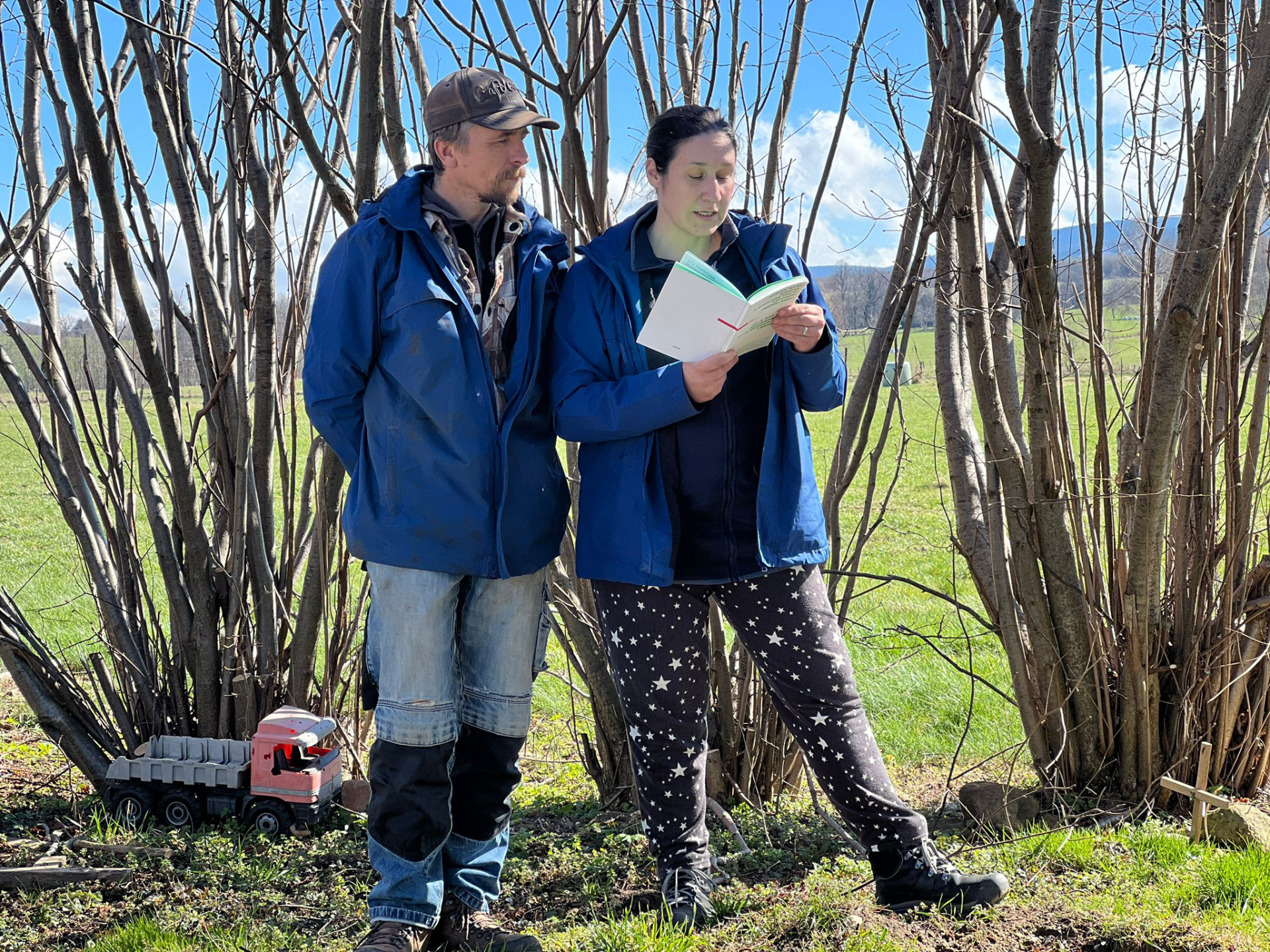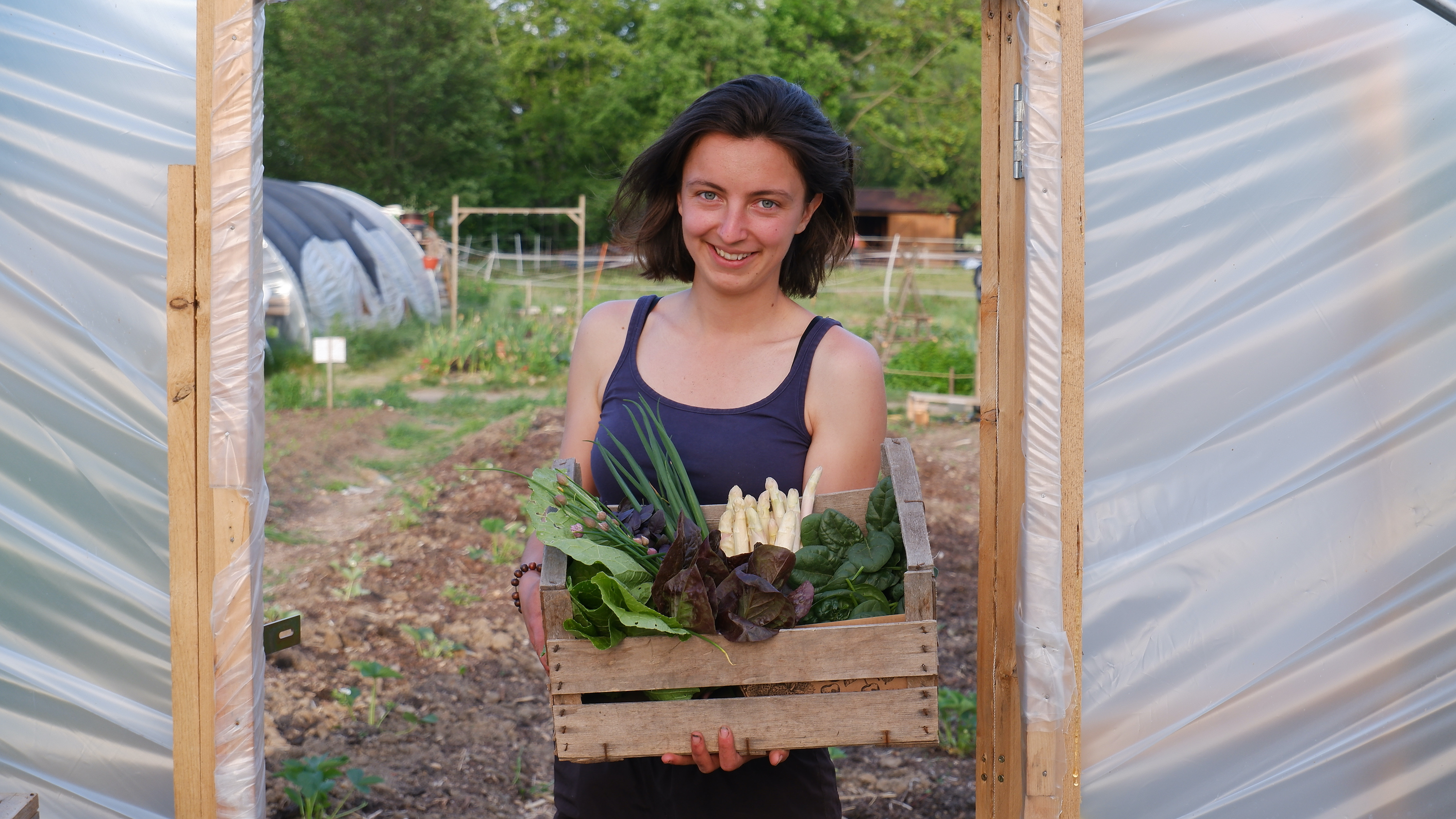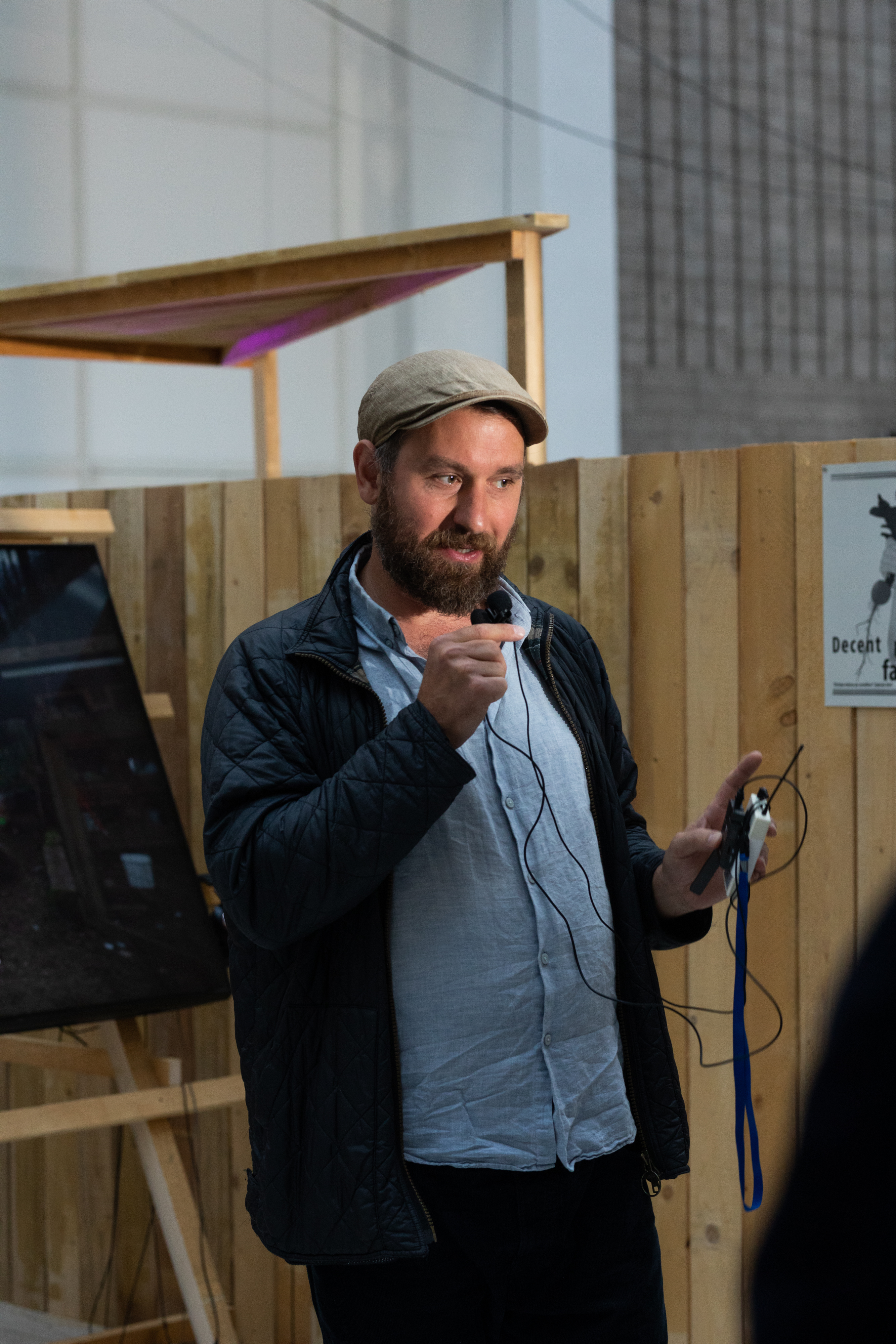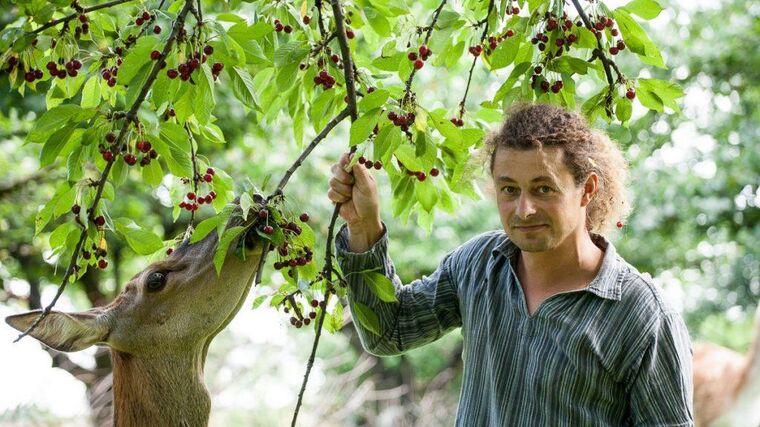The Spectre of Peasantry: Artist talk and discussion
Vendula Donátová, Radim Kotrba, Jaroslav Pražan, Tomáš Uhnák, Jan Valeška

From the making of Tomáš Uhnák's commission, from the artist's archive
Length: 04 hours 00 minutes
Language accessibility: Czech
Free entrance
In his artist talk, Tomáš Uhnák will give insight into his research for the biennale and share why he thinks it’s important to talk about the peasantry today. Who and where are the peasants in Czechia? The artist talk will be followed by a conversation with experts from research and practice, who will focus on the current environmental and social role of small farmers and the systemic challenges they are facing. How can they work toward the much needed agroecological transformation of the dominant industrial food system?
16:00–17:00 – Artist talk by Tomáš Uhnák
In The Spectre of Peasantry, his new work for the biennale, artist and researcher Tomáš Uhnák delved into the issue of where the peasantry has “disappeared” since the political and economic transition of the 1990s, curious whether this political identity – once so central to social movements of rural people fighting for their rights and emancipation – still haunts us today. He met with small-scale ecological farmers from across the Czech Republic to talk with them about their current situations, struggles, and aspirations, also asking them how they identify and see their position in society. Do they consider themselves part of the community of 2.2 billion peasants and small farmers working in agriculture globally? What do they think of UNDROP, the UN Declaration on the Rights of Peasants and Other People Working in Rural Areas, which was adopted by the UN General Assembly in 2018, after 20 years of mobilization by La Via Campesina, the international peasant movement that initiated and formulated the declaration? Are the new peasant rights advocated by UNDROP relevant for them?
In his talk, Tomáš Uhnák will share insights into his research and the installation he created for the biennale with his artistic collaborators Asia Dér, Tamás Kaszás, and Asunción Molinos Gordo.
17:30–19:30 – Conversation: Assembling Future Agriculture
Terms such as “local” and “small farmers” have become buzzwords recently, used in different social, political, national, and global contexts. But there are many unanswered questions: Who are these small farmers? How do we even know how many there are if they do not figure in the statistics? What do they produce, and how do they live? Together with leading Czech experts from research and practice, we will look at these questions and discuss pressing issues for small farmers, such as the structure of land use, following the trail from production to processing to distribution to consumption. We will talk about the structural barriers hindering the development of small-scale farming and try to suggest ways to overcome them in order to effect change in the countryside and transition to more sustainable approaches to agriculture.
Both the artist talk and conversation will include a Q&A to make space for questions from and discussions with the public.
Participants: Vendula Donátová (ecological farmer, Platforma Kultivarium), Radim Kotrba (focuses on silvopastoral systems, member of the board of Association of Private Farming of the Czech Republic), Jaroslav Pražan (specialist in agri-environmental policy, ÚZEI – Institute of Agricultural Economics and Information), Jan Valeška (director of AMPI – Association of Local Food Initiatives), moderated by Tomáš Uhnák
Farming and growing plants has been Vendula Donátová’s hobby since she was a little girl. You can usually find her on the farm in a greenhouse with her hands buried in the soil or planting and caring for seedlings. After attending an agriculturally focused secondary school in the UK, she went on to study organic farming at the Czech University of Agriculture in Prague. During her studies she started her own business and established her first greenhouse – Kultivarium, a vegetable nursery where she grows seedlings for organic farmers. Together with a group of other gardeners, she also takes care of vegetable production at the school farm Jednorožec in Roblín and in the community garden at MetroFarm. At the same time, she has long sensed a need and demand in her neighborhood for fresh, locally produced food, coupled with a desire for contact with the earth. Her mission is thus to awaken in people the same passion she has for growing vegetables, primarily through education.
Radim Kotrba teaches in the Department of Animal Science and Food Processing at the Faculty of Tropical AgriSciences of the Czech University of Life Sciences Prague. He also works as a researcher in the Department of Ethology at the Institute of Animal Science in Prague. He has long been involved in the breeding of cervids in silvopastoral agroforestry systems.
With an interest in nature, Jaroslav Pražan studied fisheries and hydrobiology in secondary school and at university (as part of his studies in zootechnics). He started his career as a manager on a dairy farm. However, in an effort to shed light on the relationship between agriculture and the environment in the field of agricultural policy, he embarked on a study of economics in England and then in the Czech Republic. He has spent most of his professional life promoting agricultural policy, building to improve its impact on the environment. He has also increased his understanding in this field through projects abroad. Restoration of landscape functions and rural regeneration have always been the driving force behind his professional work. He lives in the countryside as well.
Jan Valeška is the founder and director of the Association of Local Food Initiatives and co-founder of the For the Soil Foundation and the Farmers’ School as well as a community gardener and initiator of many community supported agriculture projects in the Czech Republic. He is actively interested in empowering people to shape their own food systems based on sustainability, mutuality, and, most importantly, with joy and love.
Tomáš Uhnák received his master’s degrees from the Academy of Fine Arts in Prague and from the food policy program at City, University of London. He is currently a PhD student and research fellow at the Czech University of Life Sciences, researching discursive, ideological, social, and material formations of agro-food paradigms and regimes, alternative food networks, organic agriculture, and theories of transformation of food systems. He is a member of the Association of Local Food Initiatives (AMPI), where his agenda involves community-supported agriculture, food sovereignty, and agroecology. He contributes regularly to academic journals and a number of Czech and international magazines on the topics of the social aspects of agriculture and the political economy of food systems. He is a food policy advisor, an agricultural consultant, and a fruit cultivator with a focus on agroforestry and heirloom fruit varieties. In his art practice he thematizes the theory of metabolic rift and uses food as a political and social tool. In 2016 Uhnák participated in the art residency and research project Kassandras in Athens, Greece, where he researched the politics of food aid and worked as a volunteer implementing food self-provisioning structures in a refugee camp. While there, he also researched the positionality and resiliency of art collectives in Athens.Also in 2016, he participated in the Delfina Foundation Art Residency (in the Politics of Food program) in London. As part of the program, he organized a psychogeographical tour through London called Politics of Societal Digestion.He also completed a research residency at the Rural Sociology Group at Wageningen University & Research in the Netherlands in 2022.His latest exhibitions include Metabolic Rift (VI PER Gallery, Prague, together with Jirka Skála, 2023), the collective exhibition Thinking through Images (Prague City Gallery, 2023), and Miam! (Garage COOP, Strasbourg, 2023).



